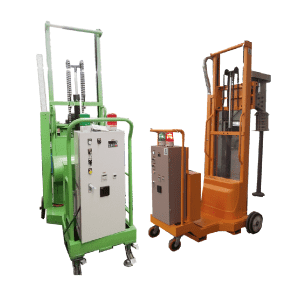

Aug . 15, 2024 15:45 Back to list
The Role of Industrial Recycling Shredders in Sustainable Waste Management
In today's rapidly evolving industrial landscape, sustainability has emerged as a critical focus for businesses worldwide. Among the various solutions that contribute to a more sustainable future, industrial recycling shredders play a pivotal role in waste management processes. These powerful machines are designed to reduce the size of various materials, making them easier to recycle and repurpose. This article delves into the significance of industrial recycling shredders and their impact on environmental sustainability.
Industrial recycling shredders are engineered to process a wide array of materials, including plastics, metals, wood, and electronic waste. By breaking down these materials into smaller, more manageable pieces, shredders facilitate the recycling process, allowing for more efficient separation and recovery of valuable resources. This initial step is crucial, as it prepares the materials for further processing and eventual reuse in manufacturing new products.
One of the key benefits of utilizing shredders in industrial recycling is the reduction of waste volume. Large quantities of waste can be difficult to manage and often end up in landfills, resulting in environmental degradation and resource depletion. Shredding materials effectively minimizes their volume, making it easier to transport and store. This reduction in size not only conserves space in landfills but also lowers transportation costs for waste disposal and recycling.

Moreover, industrial shredders contribute to the circular economy by promoting resource recovery and reducing the need for virgin materials. For instance, when plastic waste is shredded and processed, the resulting material can be transformed into new products, thus conserving petroleum resources used in the production of new plastics. This closed-loop system is essential in mitigating the ecological impact of manufacturing processes and fostering a more sustainable consumption model.
Another important aspect of industrial recycling shredders is their versatility. Different industries have unique waste streams, and shredders can be customized to meet specific processing needs. For example, electronic waste, which contains hazardous materials, requires specialized shredding solutions to ensure safe and efficient processing. Additionally, different shredding methods—such as single-shaft, multi-shaft, and twin-shaft shredding—offer varying degrees of granulation, allowing businesses to choose the best option for their materials. This adaptability is crucial in optimizing recycling operations across diverse industrial sectors.
Furthermore, the integration of advanced technologies in industrial shredders enhances their efficiency and effectiveness. Modern shredders are equipped with intelligent control systems that monitor operational performance, ensuring optimal processing conditions and minimizing energy consumption. These innovations not only increase productivity but also align with sustainability goals by reducing the carbon footprint associated with industrial waste management.
In conclusion, industrial recycling shredders are vital components in the pursuit of environmental sustainability in the industrial sector. By enabling the efficient processing and recycling of various materials, they help reduce waste, conserve resources, and promote a circular economy. As industries continue to adapt to the challenges posed by climate change and resource scarcity, the role of shredders will become increasingly important. Investing in advanced shredding technologies and practices is not just a business imperative; it is also a commitment to fostering a greener, more sustainable future. Embracing such innovations will empower industries to take significant strides toward realizing their environmental goals while contributing to a healthier planet for generations to come.
Latest news
Troubleshooting Common Eddy Separator Problems
NewsJul.04,2025
The Role of Metal Recycling Plants in Circular Economy
NewsJul.04,2025
The Impact of Recycling Line Pickers on Waste Management Costs
NewsJul.04,2025
Safety Features Every Metal Shredder Should Have
NewsJul.04,2025
How Industrial Shredders Improve Waste Management Systems
NewsJul.04,2025
How Cable Granulators Contribute to Sustainable Recycling
NewsJul.04,2025